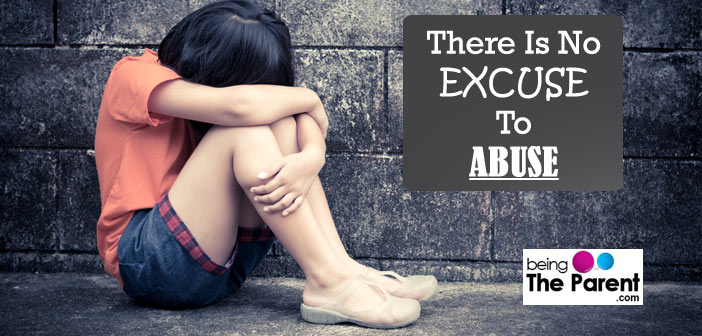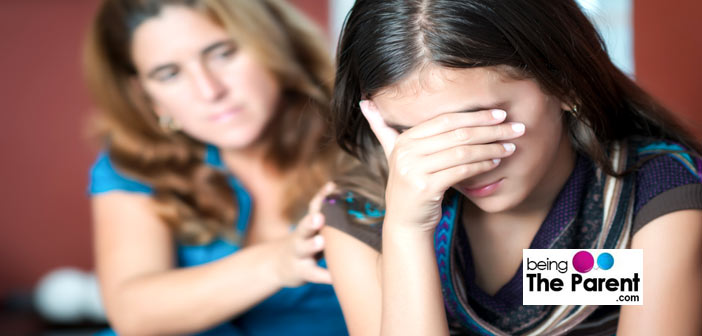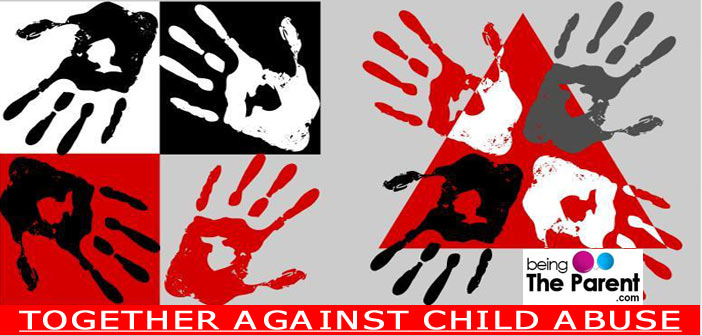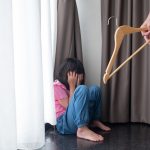
Child Abuse- The Ugly, Filthy Truth
9 min readWritten by Editorial Team


A 2007 study by the Ministry of Women and Child Development revealed that 53% of children are sexually abused in India. Take a moment to let those statistics sink in. We are talking about one in every two children. Remember that this is a five-year-old study, and in the last five years, the number would have only gone disturbingly higher.
Most of us cringe, outrage, and become increasingly paranoid with each news report about a child being abused. However, the truth, unfortunately, is that a good many of us are under an illusionary cloud of assurance that “it won’t happen to my kid.” Let’s face it – no one really “wants” to prepare for child abuse. However, you must do so because children may be short of words and expressions to communicate to you about abuse, so it is your duty—as an adult and parent— to look for signs and help them.
Child Abuse: Understanding The Definition
Most of us define child abuse in a sexual nature. However, child abuse is not restricted to sexual abuse. Any kind of harm and mistreatment that is done intentionally to a child is considered child abuse. The following are the different kinds of child abuses:
- Physical abuse: This refers to any kind of harm or injury done to a child, which is non-accidental and causes physical harm. This includes, but is not limited to, striking, biting, burning, kicking and causing severe blows (abusive head trauma)
- Sexual abuse: This refers to all kinds of sexual activities involving children. An adult or another child might perform it. Sexual activities, by definition, include touching or fondling a child’s genital area, making a child touch someone else’s genital area, verbal and manual seduction, using children for pornography, “flashing,” threatening or forcing a child to perform a sexual act and finally, penetrative sex. Incest – which refers to a blood relative abusing a child sexually – also falls in this category
- Emotional abuse: Emotional abuse refers to any act by an adult that results in injuring a child’s emotional health. Consistently ignoring, belittling, threatening and rejecting a child can impact his/her sense of self-worth and well-being
- Neglect: This refers to the failure to meet a child’s basic demands – like food, shelter, medical care, and safety – to the extent that it impacts the child’s physical and emotional health and well-being
- Substance abuse: This refers to exposing children to alcohol and illegal drugs by either consuming it in front of them or allowing/forcing them to consume it
Child Abuse Consequences: Effects Of Child Abuse
Child abuse is NOT okay or eligible in any form, not even when you might assume it to be a minor one. This is because of the severity of the consequences – in extreme cases, it might lead to death, and in others, it can inflict physical injuries, and worse, emotional scars. These kids are more likely to:
- Have trust issues and problems building relationships throughout their lives
- Have low self-esteem
- Be suicidal
- Fall into depression at the later stage in life
- Have other mental conditions that last long after the physical bruises have healed
The most brutal part of child abuse is that it is normally performed by someone the child knows – and trusts. It can be parents, siblings, other family members, family friends, teachers, or other school staff. This puts the child in a dilemma – he/she is left extremely confused to recognize an abuse from a trustful person. This, in turn, would result in hesitation and fear to speak up. This is why we, as parents, need to keep an eye on children’s bodies and behavior and recognize unspoken signs of abuse.
Facts About Child Abuse
Below child abuse statistics will be an eye-opener for many of us:
- Child abuse is everywhere, all cultures, countries, societies, and religions. No country does not report child abuse
- One in every two children are abused in some form in India
- Child abuse does not only happen with children of broken families, although they are more likely to be abused. Kids from stable families get abused too
- Child abuse is not targeted only at girls, till the age of 12 years, boys are also equally at risk of being abused
- Abusers are not social misfits and most likely are one of us. They come from all walks of life and all socio-economic classes
- 70% of child abusers are related to the children directly, and 20% are known to the family in some or the other way
- CRY quotes that about 8,945 children go missing in India every year
- Children from 40% of the total population of commercial sex workers
- Delhi, Mumbai, Kolkata, Chennai and Bangalore, the top cities of India has 80% of these children who are commercial sex workers
- 71% of these unfortunate children are illiterate
Child Abuse Detection: How to Recognize The Signs
It is difficult to catch signs of child abuse. This is because:
- It is difficult to differentiate between the physical injuries caused by an abuser and the ones caused by normal playing
- Children, as such, go through a lot of behavioral changes, especially in their teens. This makes it all the more difficult to associate a change in the child’s behavior to abuse

10 Warning Signs Of Child Abuse
- Recurring physical injuries: While every scrap and scratches need not be worrisome, please watch out for patterns and recurring injuries in any particular body area. For older children, any unexplained injury – even if not recurring – should be examined further
- Fear of going somewhere: A child abused at home would be very reluctant to leave school in the evening. A child abused at school might cry a lot and put up a fight to leave for school. The latter is easier to recognize if the child was happy to go to school before but suddenly has changed preference
- Changes in behavior: An abused child might appear depressed, withdrawn, aggressive, or scared. They might also show increased anxiety and fear near the abuser. Some of them might start wetting their bed, sucking their thumb or being scared of the dark
- Loss of appetite: You might notice changes in a child’s eating behavior – a fussy eater might start eating a lot, or a healthy eater might start becoming fussy. Weight gain or loss are strong pieces of evidence for this
- Bruises in genital areas: A sexually abused child might have tears, nail marks or redness around the genital areas
- Urinary Tract Infections: Again, all UTIs are not signs of abuse. But UTI, coupled with some of the other symptoms listed here, should give you warning signs
- Changes in sleeping patterns: An abused child might have difficulty falling asleep and might constantly wake up during sleep, expressing fear. If your child sleeps in a separate room, look for signs of constant tiredness and lethargy
- Lack of concentration: Abused children might find it difficult to concentrate or focus for a long time. This can impact the child’s school performance
- Self-harm: Abused children might inflict self-harm like cutting or exhibit excessively risk-taking behavior
- Sexually-explicit behavior: Some of the sexually abused children might exhibit a sexual behavior that is too explicit and inappropriate for their age
Apart from these signs in your child, you should also look for inappropriate or worrisome traits in the child’s caregiver or nanny, especially if they cannot explain or contradicts reasons for a child’s injury. This is important, especially if both the parents are working and the child is left to the care of nanny alone at home.
Preventing Child Abuse – The Role Of Parents
Though statistics seem grim and stories of abuse sound strange, the fact is that child abuse is largely preventable. However, we cannot expect our children to take charge of preventing child abuse- The charge has to be ours. It will be hard to abuse a child who knows about his body and are aware of the abuse. That is why it is so important to talk about body parts and touch to kids at a very early age. Though we teach our children to respect elders, we also need to make them confident that they should scream if an elder does something inappropriate or hurtful. And to protect our kids from pedophiles, we need to pay attention to a child’s behavior and statements – no matter how vague and fragmented. As parents, we need to investigate and ensure our best efforts. Our first kind words, without making the child fearful, anxious, or sad, will set the child on the road to recovery.
Help Your Child: What Are the Steps To Be Taken if Your Child Complains of Abuse
The first and most important step is to recognize and accept the fact that your child is being abused. Many at times, parents want to turn a blind eye to child abuse as they do not want to and do not know how to deal with it. The situation becomes all the more complicated when the abuser is a close family member. This kind of denial was truer for the bygone generation. Thankfully, today’s parents are better educated, better equipped, and bolder than their parents.

If you think your child is being abused, you need to
- Be very supportive to your child: Hold him close and reassure that you believe him, will stand by him unconditionally and will protect him from further abuse. No amount of affection is “too much” in situations like this. Go overboard in making him feel secure
- Break the silence: Explain to him there is no shame or fear involved in discussing this out. Tell him there is no need for secrecy and that together you will address the issue
- Be very sensitive: Be exceptionally sensitive if the nature of the abuse was sexual in nature. Remember that if your child is older, he might have experienced some pleasure out of the abuse, and might be feeling guilty about it. He might also be wrongly convinced that it happened to him because he asked for it. Emphasize strongly that the child is not to be blamed. Help him understand that he is but a kid and is not expected to know better. Do not, under any circumstances, say things like, “why did this happen to you alone? What did you do?” that might result in them blaming themselves
- Keep your child away from the abuser: If you think your child is being abused by a family member, babysitter, or school staff, keep your child away from them until you seek help from authorities. Do not try to protect an abuser, no matter how close they are to you. Someone who can take advantage of your child’s innocence and helplessness does not deserve your protection
- Take action: Report the abuse immediately (see below for Helpful Resources).
- Seek help: Despite your best efforts, if you feel that your child is still withdrawn and is having behavioral problems, think about counseling or therapy. Understandably, your child might find it easier to open up to someone outside the “trust” circle.
Child Abuse: Coping Up As Parents
However rational you are as a parent, your child being abused can shake you and make you say and do things that you otherwise wouldn’t. It is important that you cope up and put up a brave face for your child’s sake.
- Keep calm. Your child is already very anxious. Let us not cause them to worry more
- Do not blame yourself. You love your child to bits and have protected him/her to the best of your abilities. This was not in your control
- Ask for help. Talk to someone you trust or seek therapy if you feel you cannot hold it together
- Read up and educate yourself on the best ways to talk to your child and help him/her understand how he/she can communicate and trust you to speak up anything

Preventing Child Abuse: Must Do’s
With reports on child abuse on the rise, it is important to equip yourself and the child to prevent potential abuse or avoid an abusive situation.
- Explain to your child the difference between good touch and bad touch. There are countless videos and other materials available online for this. There are also local NGOs that would come and take a session for children in a neighborhood and apartment. Read more about good and bad touch here
- Teach them the art of saying no. They should be able to refuse firmly any actions that they find as inappropriate
- Tell them that they should not shy away from creating an alarm and running away from the scene if they suspect trouble
- Keep the channel of communication open with your child. As your child grows and becomes more independent, you might not spend as much time with him/her as you used to. It is important to let children know that they can come and talk to you any time they want about anything they want
- And as always, teach them not to talk to strangers. Ask them to inform you if a stranger talks to them or tries to act friendly
Helpful Resources: Reporting Child Abuse
You should not tolerate any kind of child abuse under any circumstances. More so if your child has been sexually abused. In 2012, the Indian parliament passed the Protection of Children against Sexual Offences Act (POCSO), which in many unique ways try to protect a child who has been abused while at the same time punishing the perpetrators of the crime. One salient feature of the act is that it has made it illegal not to report a child sexual abuse. If your child complains of abuse, you should either contact an NGO who specializes in child abuse or contact the nearest police station.
- Childline, an NGO focusing on helping child abuse victims, runs a 24×7 child abuse hotline number 1098. This NGO would connect you/child to various other contacts, including Police, Ministry of Women & Child Development, healthcare centers and rehabilitation services
- You could also contact the Police Control Room at 100 in case your child requires immediate help
Always remember, there is no EXCUSE to ABUSE.

Editorial Team,
With a rich experience in pregnancy and parenting, our team of experts create insightful, well-curated, and easy-to-read content for our to-be-parents and parents at all stages of parenting.Read more.
Responses (0)
Want curated content sharply tailored for your exact stage of parenting?
Sponsored content
Discover great local businesses around you for your kids.
Get regular updates, great recommendations and other right stuff at the right time.











